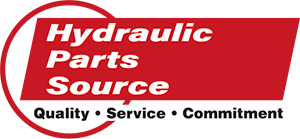You may know how to replace corroded parts in a hydraulic system, but do you ever wonder why corrosion occurs in the first place?
Corrosion, a chemical reaction between an acid and a metal, is the gradual wearing down of metals in a system.
The reaction can result in the rusting of ferrous metals within a hydraulic system when hydraulic fluids (oil, additives, or water) contribute to the corrosion.
To prevent damage, hydraulic systems need corrosion prevention, which occurs in two stages:
Manufacturing – standard industry practices are designed to inhibit corrosion
Maintenance – as systems age, maintaining corrosion inhibition becomes part of maintenance procedures
Let’s walk through some frequently asked questions about corrosion, recap how to avoid it, and assure you of our commitment to quality at HPS.
Corrosion Q & A
Q: Is Corrosion Physical or Chemical?
A: Corrosion is the result of?chemical reactions that occur whenever a?gas?or?liquid?chemically attacks an exposed?surface, often a?metal. It is?accelerated?by warm temperatures, acids,?and?salts.Q: How Can Corrosion Harm a Hydraulic System?
A: Corrosion wears away metal surfaces and creates internal and external hydraulic system leaks, which is high on the list of causing system failure. At the very least, these damaging leaks will be costly and time-consuming to repair.Q: What Causes Corrosion?
A: Seal failures, poor fluid selection, and heavy loads are three common causes of systemic corrosion.- Seal failures: Damaged, misaligned, or worn seals allow contaminants to enter the system, which can contain water or particles, triggering chemical reactions that cause corrosion
- Poor fluid selection: Incompatible fluids and oils can break down or eliminate chemical additives that prevent
- Heavy Load or Long Duration Operation
How to Prevent Corrosion in Hydraulic Systems
Corrosion can create serious and expensive damage to a hydraulic system, so proper set-up and maintenance is vital to keeping corrosion from harming them over time.
Let’s recap Six HPS Tips to avoid hydraulic system corrosion.
Tip #1: Select and maintain the Right Fluid
Select the?hydraulic fluid?that suits the system material and application. Using the correct fluid will reduce chemical attacks. Maintaining the fluid is vital to controlling corrosion.? Eliminating water in the oil will reduce the ability of the fluid to react with the metal components of the system. Avoid fluid oxidation because this will allow acids to build up and break down the rust and corrosion inhibitor additives in the fluid.Tip #2: Replace worn/defective seals
Provide a proper seal for every component and ensure tight connections to eliminate contaminants such as water, air and dirt.Tip #3: Inspect regularly
Inspect the system at regular intervals and carry out basic maintenance tasks. Take fluid samples and have them tested for water and overall fluid condition. This is the foundation of a good contamination control program.?Tip #4: Consider the use of oil additives
Use anti-wear hydraulic oil additives that will protect the system from wear and corrosion.?Tip #5: Install an oil cooler
Install a suitable oil cooler to reduce the temperature of the system and help maintain desired fluid properties. Replacing worn components that can cause a decrease in power efficiency help reduce the amount of energy lost in the form of heat in the hydraulic system.Tip #6: Install a filter
Install a proper breather filter on the reservoir to prevent the foreign particles from entering the reservoir. Replacing the filter in necessary conditions is also important. Breather filters equipped with some type of water vapor removal device such as a desiccant or coalescing material will reduce the amount of water formation inside the reservoir where it can contaminate the fluid.HPS Values Quality Pumps, Valves, and Motors that Inhibit Corrosion
As mentioned before, avoiding corrosion starts during the manufacturing process.
At HPS, every person we choose to involve in the process — from our suppliers to remanufacturers, to distributors, to the end users – has a passion for delivering quality and a desire to work with the best.
To do so, HPS maintains four unique standards that we absolutely will not waver on:
- Great Customer Service
- Quality Products
- Value Added Suppliers
- Immediate Availability
Our product lines — Vickers, Denison, the Rexroth A10VSO series, and Servo and Proportional valves — are top-notch, and these standards, along with the delivery of customer service and our core values, allow us to supply distributors with confidence.
Hydraulic Parts Source is a leading fluid power remanufacturer, and we’re ready to serve you. Contact us today to experience OE quality for a fraction of the time and cost by calling (866) 304-5404 or get a quote by emailing sales@hydparts.com.

